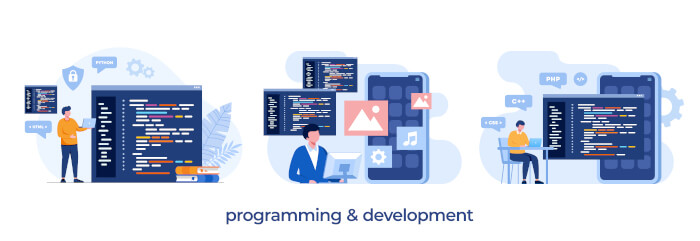Perseus is a web development framework for the Rust programming language that focuses on the state of your app.
It supports reactivity using Sycamore, and builds on it to provide a fully-fledged framework for developing modern apps.
The main key idea that underpins Perseus is about templates, and the primary architectural matter to understand is how Perseus apps actually work in terms of their components. Templates are the key to understanding Perseus code. Once you do, you should be able to confidently write clear code for apps that do exactly what you want them to. Nicely, this core concept also correlates with the file of code that defines the majority of the inner workings of Perseus (which is 600 lines long…). There are two things you need to know about templates: An app is split into templates, and each template is split into pages. A page is generated from a template and state. Template + state = page
This is free and open source software.
Features include:
- Supports static generation (serving only static resources).
- Supports server-side rendering (serving dynamic resources).
- Supports revalidation after time and/or with custom logic (updating rendered pages).
- Supports incremental regeneration (build on demand).
- Open build matrix (use any rendering strategy with anything else).
- CLI harness that lets you build apps with ease and confidence.
- Full i18n support out-of-the-box with Fluent. Just add translations using Fluent, and your app can be set up in seconds in multiple languages, with automatic user locale detection.
- Lighthouse scores of 100 on desktop and over 95 on mobile.
- Support for hot state reloading (reload your entire app’s state after you make any code changes in development.
- Built-in plugins system and full customizability of almost every part of the system
Website: github.com/framesurge/perseus
Support:
Developer: Sam Brew
License: MIT License
Perseus is written in Rust. Learn Rust with our recommended free books and free tutorials.
Return to Rust Frontend Web Frameworks
| Popular series | |
|---|---|
| The largest compilation of the best free and open source software in the universe. Each article is supplied with a legendary ratings chart helping you to make informed decisions. | |
| Hundreds of in-depth reviews offering our unbiased and expert opinion on software. We offer helpful and impartial information. | |
| The Big List of Active Linux Distros is a large compilation of actively developed Linux distributions. | |
| Replace proprietary software with open source alternatives: Google, Microsoft, Apple, Adobe, IBM, Autodesk, Oracle, Atlassian, Corel, Cisco, Intuit, and SAS. | |
| Awesome Free Linux Games Tools showcases a series of tools that making gaming on Linux a more pleasurable experience. This is a new series. | |
| Machine Learning explores practical applications of machine learning and deep learning from a Linux perspective. We've written reviews of more than 40 self-hosted apps. All are free and open source. | |
| New to Linux? Read our Linux for Starters series. We start right at the basics and teach you everything you need to know to get started with Linux. | |
| Alternatives to popular CLI tools showcases essential tools that are modern replacements for core Linux utilities. | |
| Essential Linux system tools focuses on small, indispensable utilities, useful for system administrators as well as regular users. | |
| Linux utilities to maximise your productivity. Small, indispensable tools, useful for anyone running a Linux machine. | |
| Surveys popular streaming services from a Linux perspective: Amazon Music Unlimited, Myuzi, Spotify, Deezer, Tidal. | |
| Saving Money with Linux looks at how you can reduce your energy bills running Linux. | |
| Home computers became commonplace in the 1980s. Emulate home computers including the Commodore 64, Amiga, Atari ST, ZX81, Amstrad CPC, and ZX Spectrum. | |
| Now and Then examines how promising open source software fared over the years. It can be a bumpy ride. | |
| Linux at Home looks at a range of home activities where Linux can play its part, making the most of our time at home, keeping active and engaged. | |
| Linux Candy reveals the lighter side of Linux. Have some fun and escape from the daily drudgery. | |
| Getting Started with Docker helps you master Docker, a set of platform as a service products that delivers software in packages called containers. | |
| Best Free Android Apps. We showcase free Android apps that are definitely worth downloading. There's a strict eligibility criteria for inclusion in this series. | |
| These best free books accelerate your learning of every programming language. Learn a new language today! | |
| These free tutorials offer the perfect tonic to our free programming books series. | |
| Linux Around The World showcases usergroups that are relevant to Linux enthusiasts. Great ways to meet up with fellow enthusiasts. | |
| Stars and Stripes is an occasional series looking at the impact of Linux in the USA. | |
